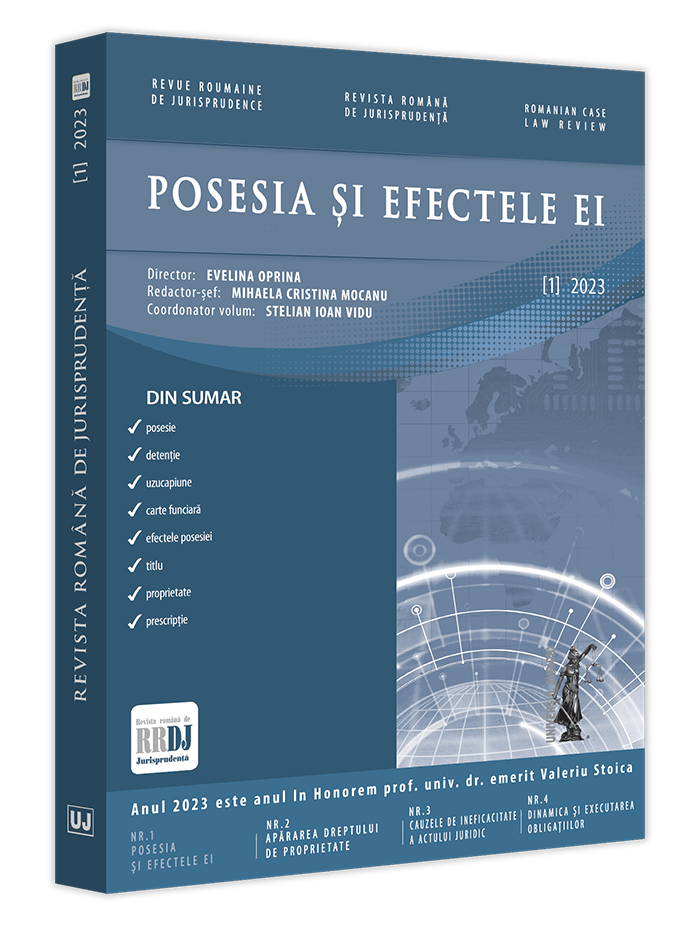The public or private legal nature of the lapse of three year time limit provided for in Art. 937 para. (2) Civil Code. Implications of its evocation for actions for the recovery of possession submitted outside the three year period
JURISPRUDENŢĂ COMENTATĂ ŞI ADNOTATĂ
Keywords:
legal nature, Civil CodeAbstract
The substantial lapse of time is qualified as being of public or private order depending on the nature of the interest protected by the rule setting the term. In the light of the considerations set out in this article, we consider that failure to bring an action for the recovery of possession within the three‑year time limit provided for in Article 937(2) of the Civil Code is sanctioned by a private loss of rights, being necessary to invoke this sanction, by way of defence, by the opposing party.
In the first case, by the judgment of the court of appeal, which reviewed the merits of the action for the recovery of possession, the court assessed of its own motion the three‑year time‑limit, finding that it had expired and that the action was unfounded, although the defendant had not invoked the lapse of time.
On the other hand, in the second case, the first instance admitted the action for the recovery of possession, holding that the lapse of time provided in Article 937(2) of the Civil Code could not be invoked ex officio. Subsequently, on the basis of the same grounds, the court found that the lapse of the time period was in any event interrupted by the plaintiff's request to be joined as a civil party in the criminal proceedings against the defendant. The appeal against this judgment was admitted and the civil judgment was changed in its entirety in order to admit the plea of lack of locus standi and, subsequently, to reject the main claim, without proceeding to the merits.








